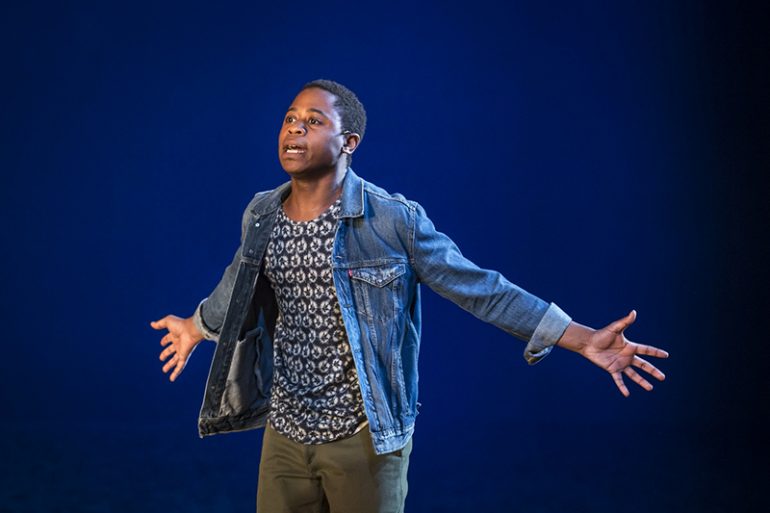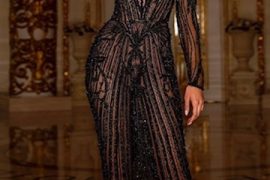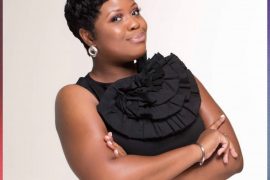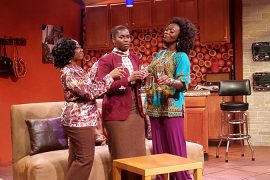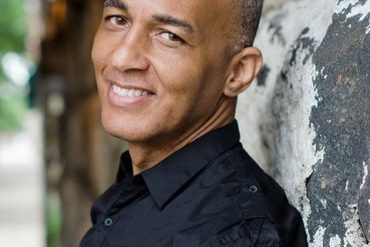Objects In The Mirror
At: The Goodman Theatre through June 4
Playwright: Charles Smith
Director: Chuck Smith (no relation)
Starring:
Daniel Kyri as Shedrick Yarkpai
Allen Gilmore as Uncle John Workolo
Ryan Kitley as Rob Mosher
Lily Mojekwu as Mother Luopu Workolo
Breon Arzell as Cousin Zaza Workolo
This play elicits a spontaneous standing ovation; what you’ve just watched will move you to jump to your feet in applause at the end. The writing and performances are just that sharp.
Objects In The Mirror is interesting and thought provoking in its first half, then turns brilliant and profound after intermission.
Watching it is like sitting over coffee with someone you barely know, listening to an amazing tale of something that happened in their life. The play was almost conceived that way, in fact, in the truth is stranger than fiction category.
The story is about the odyssey of a young Liberian guy named Shedrick Yarkpai trying to escape the horrors of the civil war his country was involved in. Between 1989 and 2003, Liberia was caught in a battle between Charles Taylor, whose forces had overthrown the existing government in a brutal coup, and rebel forces from within Liberia and neighboring countries, who opposed Taylor’s rule.
In the fight, both sides were cruel and committed atrocities; both sides pressed into service young boys, mostly aged nine to 13, as child soldiers and forced them into drug habits to keep them fighting. At one point, it was estimated that at least a quarter of the soldiers fighting this war were those children.
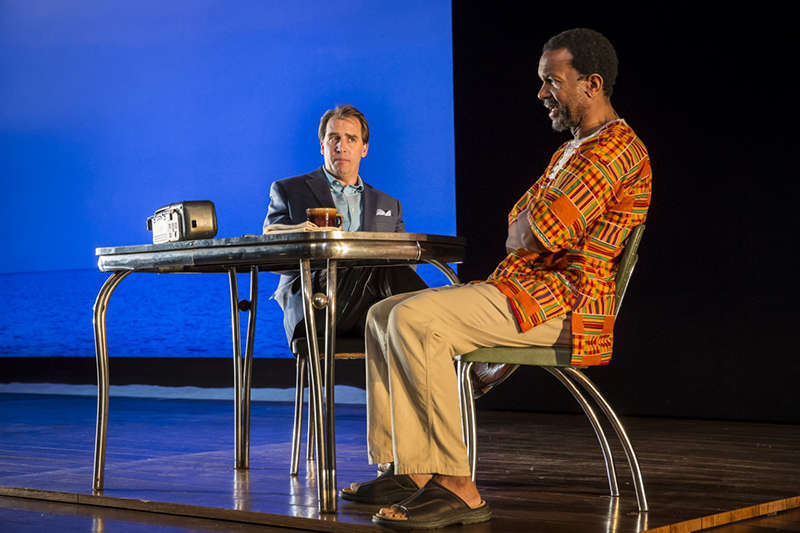
Nearly 14 at the time, Shedrick Yarkpai’s family knew eventually he’d be recruited as a boy soldier or killed if he stayed in Liberia, and so began a 12-year journey to get him into safer territory.
Shedrick and members of his family did eventually make it to southern Australia, where they were accepted as refugees, and it is in his new haven city of Adelaide that Shedrick is relaying his story to a newly made Australian friend in the play.
Shedrick’s story is a first-person account of going through the hell of refugee camps; the ever-present danger of traveling through warring forces to get to those camps; the despairing, years-long wait to see if your name will ever be called to begin the process of relocation; and the trepidation of hoping your background story is favorable enough that you’ll even be considered for a visa, or sent back to the war torn area from which you originally came.
This part of Objects In The Mirror is enlightening to those aware of refugee situations all over the world today, particularly in Syria and other African nations, but don’t concern ourselves with the reality of it as we are relatively safe and free in our own little cocoons.
And we cheer for Shedrick and his family members that made it to safety, finally, in sunny Australia. Good for them.
But then comes the second half of the play at the Goodman, along with a new set of dangers. Because as hard as it is to emigrate to a new land, the fear of being deported from that same land is just as oppressive, particularly if there are problems with your background story that made you a favorable candidate to get a visa in the first place.
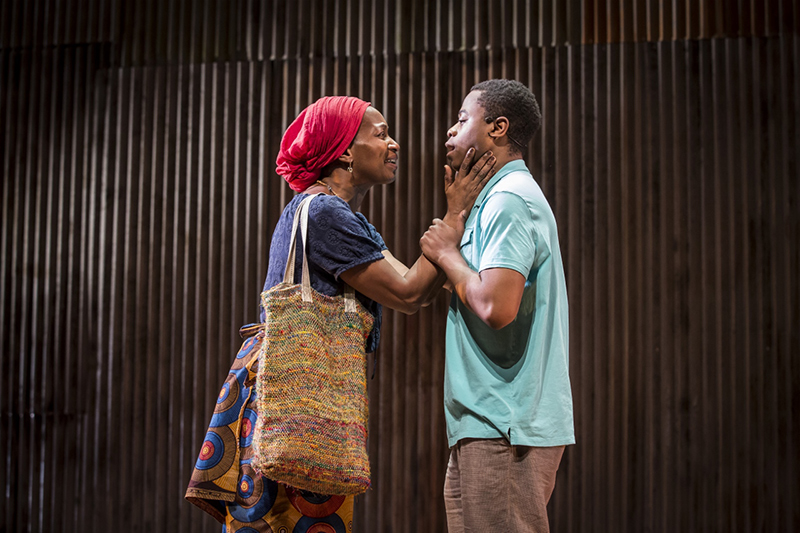
Stranger Than Fiction
Objects In The Mirror is based on the true story of Australian actor Shedrick Yarkpai, whose tale caught the attention of playwright Charles Smith under the weirdest circumstance.
Smith is a growing force in American theater. His written works include Black Star Line, Knock Me A Kiss, Pudd’nhead Wilson, and the Jeff Award-winning Free Man of Color. He is a Distinguished Professor of Playwriting at Ohio State University, where he is head of the MFA Playwriting Program.
In 2009, a production of Smith’s play Free Man of Color was mounted in Adelaide, Australia and Shedrick Yarkpai was cast as the lead. The next year, another Smith play was mounted in Adelaide and Shedrick was cast again.
As the two men got to know each other, Shedrick shared his life story and Smith knew he had to write it. Smith says, “The first act of the play is the story that Shedrick told me: he left Liberia running from the war and ended up in a series of refugee camps with family. His uncle said: ‘I can get us out of here.’ I wanted to detail those events and that sort of travel.”
They did get out, but had to alter who they were to do so. Shedrick had to assume the identity of his dead cousin, and other family members had to do similarly. The necessity to do that, and the ramifications that came with it during the years of making the journey and in its aftermath, are at the crux of the play.
To abandon who you are and to assume the identity of another and live that person – for years – leads to questions of who are you really, which memories are really yours, depending on who you really are or chose to be, and depending on who you chose to be, is that truth, real truth.
Shedrick is consumed by this weighty question of identity – a false(?) identity that he must adhere to for the sake of every one concerned – and the choices he makes to resolve his inner turmoil could lead to the most dire consequences for him and his family.
Smith’s writing is at its most compelling when handling the issue of what is truth, whether deceptive stories that withhold facts are still true, and just who’s lying to whom over the course of the play, as everyone is so adept at telling their stories.
The acting is brilliant throughout under the masterful hands of director Chuck Smith, but especially by Allen Gilmore as Uncle John, a survivor who must navigate on behalf of his family the treachery among his own people in his native land, as well as the racism encountered in their new sanctuary city, and who tells a devastatingly searing truth to his nephew Shedrick, in explanation of how this play got its name.


